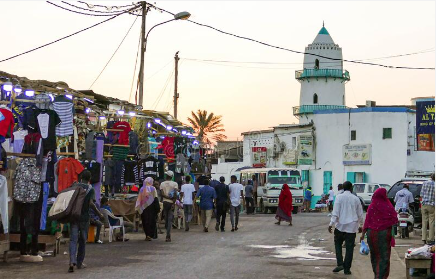The construction of China’s first overseas military base has quickly directed the world’s attention to one of the smallest countries in the Horn of Africa – Djibouti. Currently, observers are obsessed with the military base and transit port. They have, unfortunately, overlooked the economic potential of the country with geopolitical advantage and a good natural harbour. Despite the lack of natural resources and an underdeveloped economy, Djibouti faces an increasing demand for service providers such as hotels, restaurants, and recreation centres due to a growing tourism industry and an increase in military personnel.
Tourism
With the bulk of foreigners coming on business and leisure trips, Djibouti saw a growth in the number of foreigners from 58,425 in 2009 to 73,000 in 2014. This represents a 24% increase. Yet, according to the World Bank’s “Country Partnership Strategy for the Republic of Djibouti” report published in March 2014, only 10% of the country’s tourism potential has been exploited.
Osman Abdi Mohamed, the managing director of Djibouti’s National Tourism Office, predicts that visitor numbers would rise to more than 500,000 a year by 2030, with half of them coming from Asia. As China is building its first overseas military base in Djibouti, the country would become better known to Chinese tourists. Djibouti is now eyeing investment from China to boost its tourism industry, with Chinese tourists a major target.
Currently, the hotel sector in Djibouti is left in the hands of two international brand hotels – Sheraton and Kempinski, plus some non-chain hotels. Most hotels are expensive with the price of a standard room ranging between USD 200 – USD 500 per night, and customer service is below par. Besides, few restaurants can satisfy the needs of incoming travellers and catering brands are very few. Without quality service providers and facilities, it would be difficult for Djibouti to attract tourists and see the sector attain its potential.
The tourism industry is considered to play a key role in the government’s economic development strategy, vision 2035. With the policy support, can our investors leverage Chinese stakeholders and tap into this market?

Recreation
Djibouti is one of the countries with the most military bases in the world. There are at least seven international military bases in an area of only 23,200 square kilometres, including the naval ports of the United States, France, Japan, Germany, Spain, EU, and China. Hundreds of thousands of military personnel, business travellers, and family visits fill up the hotels in Djibouti fast, but large-scale recreational activities are close to none.
At the moment, the capital city of Djibouti only has one supermarket chain – Casino Mall, and has no place for purchasing jewellery, cosmetics or other gifts. Not to mention art, sports, and theatres.
“We usually stay home after work and buy gifts for the family when we transfer flights in Dubai. There is no place to spend a penny in Djibouti.” An employee at a Chinese company based in Djibouti told me.
Coupled with the development of the tourism industry and military needs in the near future, Djibouti will inevitably see a boom in the recreation sector. Investors should think strategically and initiate business to meet potential opportunities.
References
1. ‘Djibouti’s enormous tourism potential attracting more attention’ – Oxford Business Group
2. ‘Tiny African nation of Djibouti banks on Chinese tourists’ – South Africa Morning Post
Tong Wu (MBA 2024) has nine years of experience in healthcare, thinktank and tech start-ups across different regions – China, East Africa, North Africa and Middle East. She is an experienced researcher, marketer, and entrepreneur. She is passionate about innovative business models to empower SMEs in developing countries and sustainable economic development.
The Wheeler Institute is seeking to understand, illuminate and offer solutions to the challenges faced by the developing world, with an aim to identify the role of business in addressing these challenges and a focus on the implications and actions for those in developing countries. In support of our students, we approach this blog section as a reflective platform and a space where individuals can generate debate as long term agents of positive change.
